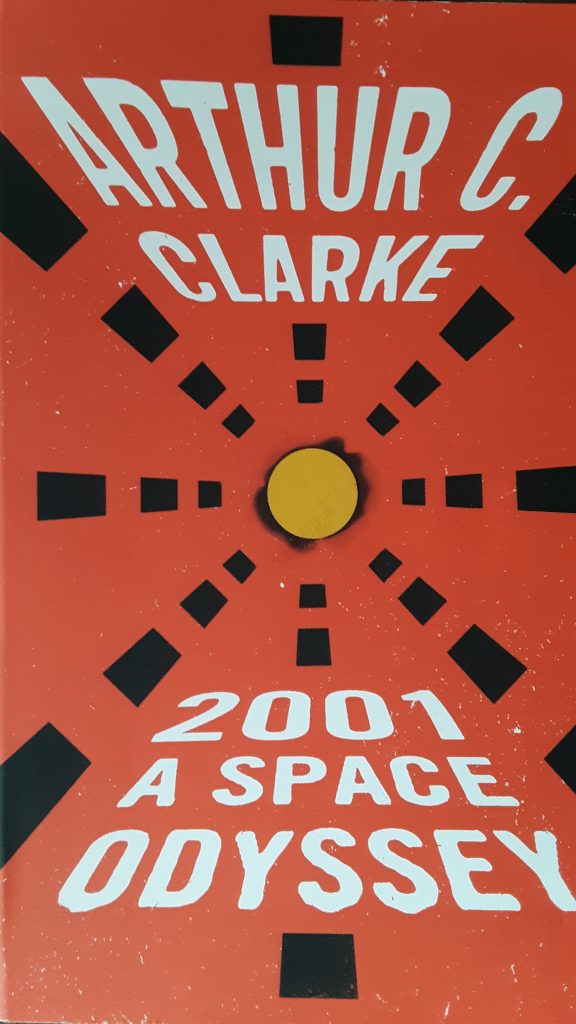By Arthur C. Clarke

I had to buy this at retail price from Amazon, because I couldn’t find it in the thrift stores or used book shops.
2001: A Space Odyssey is clearly the best of the series. In some respects the tension and mystery of the first episode is undone by the books that follow. As a ‘movie book’ it rates higher than most, probably because it was written with film director, Stanley Kubrick as the screenplay developed.
There are some notable differences. While the film takes us to Jupiter for it’s surrealistic climax, the book uses Jupiter’s immense gravity to sling shot it to Saturn and its moon Iapetus where David Bowman encounters the star gate that leads him unknown light years away from home. Much of this reasons for these differences are practical and explained in Clarke’s The Lost Worlds of 2001.
The most striking difference I noticed between the film and the book was the treatment of David Bowman’s conflict with the HAL 9000 onboard computer. In the film HAL is seems much more emotional. He secretly catches David and his crew mate Frank Poole, by reading their lips, discussing a possible fault in HAL; and soon after Frank Poole is killed by HAL. Dave seems to suspect HAL from the beginning but keeps his cool and doesn’t let on. He goes outside the ship to retrieve Frank’s body, and only then are his suspicions about HAL confirmed.
In the book the possibility of error within HAL and the idea of turning him off, is openly discussed with mission control. Bowman’s suspicions are confirmed when he and HAL argue over protocol and control of the hibernation systems which sustain David’s additional sleeping colleagues. Protocol says, that since Frank has been killed in a mysterious accident, additional team members must be awakened. When HAL sees there is no alternative he tries to kill everyone by breaking open the atmospheric seals on the ship.
There are other small differences but in this instance the Kubrick uses the poetry of film to create more tension. Because HAL is seen as emotional, even boastful of his abilities, we relate to him. He seems genuinely offended on some level and his murders, though cold and calculated, have a twinge of passion and revenge. Clarke’s HAL merely states the fact that he has never made a mistake, and his killing is purely because of some logical conflict with his mission, which is paramount. As explained in later novels, HAL kills only when he cannot resolve this logical paradox.
Kubrick’s HAL, technically kills for the same reason, but there is more visceral engagement with the the human side and therefore there is more emotional impact on the viewer. This is the job of the film maker. Clarke, a writer of ‘hard science fiction,’ is bound in some ways by the mandate to stick to logical explanations. This is not wrong, but it is interesting to note the differences in approach, and the film and book together give voice to a healthy debate.